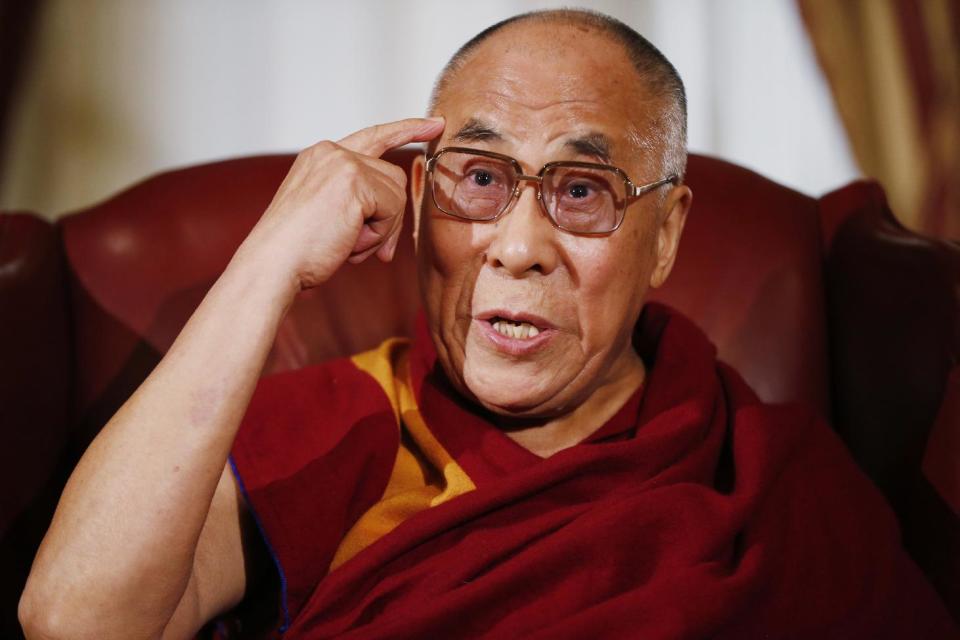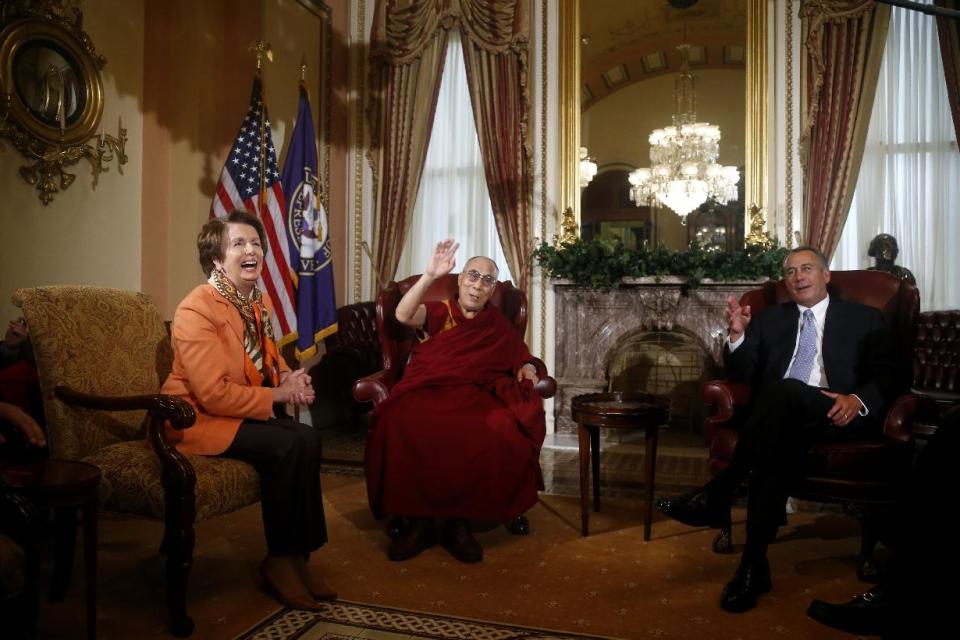Dalai Lama opens Senate session with prayer
WASHINGTON (AP) — With lawmakers listening raptly, the Dalai Lama on Thursday opened the U.S. Senate session with a prayer of peace as congressional leaders set aside partisan differences to receive the Tibetan spiritual leader together.
Two weeks after President Barack Obama angered China by inviting the Nobel laureate to the White House, the Dalai Lama was warmly welcomed on Capitol Hill, where he paid tribute to America as a "champion of democracy and freedom."
The Senate often has guest chaplains offer the opening prayer at the start of a daily session — although rarely if ever in Tibetan language.
After clasping hands with individual senators in greeting, the Dalai Lama delivered his brief remarks in both his native tongue as well as self-described "broken English."
"With our thoughts, we make our world," said the Dalai Lama, dressed in gold and red robes. "Our mind is central and precedes our deeds. Speak or act with a pure mind and happiness will follow you like a shadow that never leaves."
He hoped for joy in the world and good fortune.
Senators bowed their heads as the Dalai Lama prayed. Staff filled the back rows of the chamber and visitors observed from the gallery above.
Senate Majority Leader Harry Reid, a Democrat, thanked the Dalai Lama for his prayers and words of encouragement.
"The Dalai Lama is well-known throughout the world as a spiritual leader of the Tibetan people and for spreading the gospel of peace and compassion and love of our fellow human beings," Reid said.
The Dalai Lama gave up his political role as the leader of the Tibetan government-in-exile in 2011, but remains a reviled figure in the eyes of Beijing, which considers him an anti-Chinese separatist because of his quest for greater Tibetan autonomy.
The Dalai Lama later met House leaders, who set aside partisan differences to welcome him.
Speaker John Boehner, a Republican, said the fight for religious freedom and tolerance has always brought Congress together, a sentiment echoed by Democratic leader Nancy Pelosi. She described the situation in Tibet as a "challenge to the conscience of the world."
Also attending the meeting was Lobsang Sangay, a Harvard-educated legal scholar who was elected in 2011 as prime minister of Tibet's government-in-exile, and has since taken on the political leadership role that the Dalai Lama once held.
___
Associated Press writer Matthew Pennington contributed to this report.


